
Chris Ford
Senior Vice President Of Product Management (Ex Business Director at Pixar Animation Studios) AT Prezi (Previously Pixar, Roblox, Autodesk)
As Prezi's Senior Vice President of Product Management, Chris brings over 25 years of experience as a leading authority in computer graphics (CG) and visual product development in feature film visual effects, animation, game development, video and compositing applications, and scientific visualization.
In his previous roles, Chris served as Business Director at Pixar Animation Studios (Walt Disney Co) where he grew the studio's photorealistic RenderMan technology to a dominant global market share of 75% of all feature films containing rendered VFX and animation. Chris has also held key Product Management positions at HOVER Inc, Roblox, at Autodesk where he was Director of Product Management for 3D Media & Entertainment applications including 3D Studio Max, and at Alias|Wavefront (SGI) as Senior Product Manager where he introduced Maya to the market, the world's leading professional CG digital content creation software. During his terms of product leadership, visual media applications managed by Chris have been awarded three Scientific and Technical Academy Awards, and he is credited in twelve feature films.
Chris is also an active amateur astronomer and astrophotographer with a specific interest in explaining the universe through advanced visualization techniques and frequently lectures on the integration of media experiences and science. In 2011, Chris joined the Board of Directors of the Astronomical Society of the Pacific (ASP), one of the largest 501c3 organizations in the United States dedicated to STEM education through the medium of astronomy, and served as President of the Society between 2017 and 2019.
Talk: How Buzz Lightyear added another dimension to the Universe!
This talk focuses on the distinct art of defining visually immersive and 3D spatial product experiences, the specific type of product management and associated user engagement needed to successfully do so, and how it relates and differs from conventional "Product 101". This highly visual and animated presentation will be illustrated with examples from the Authors career at Autodesk, Pixar, Disney, Roblox, and Prezi and provides pointers on how to think about defining product experiences in a future Metaverse.
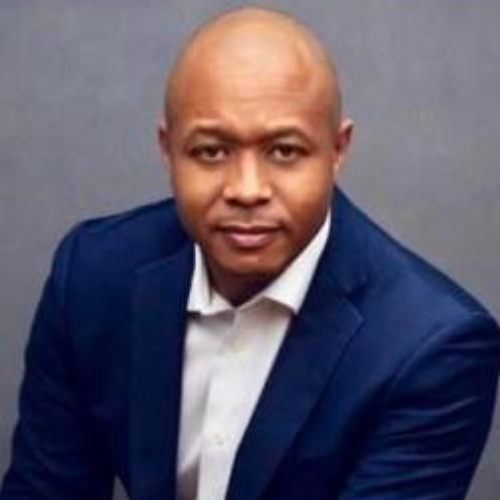
Shawn Fair
CEO AT Fair Consulting Group
Shawn Fair is the founder of the Leadership Experience Tour, the #1 platform of its kind for aspiring speakers in the United States. He is a coveted member of the Forbes Coaching Council and one of the most sought-after corporate leadership and management consultants for major corporations in the United States, Canada, and Europe. Shawn has a useful technique that helps leaders identify their blind spots. His genuine and personal coaching and training service made him a top choice in the training industry.
Shawn has trained over 300,000 leaders in the United States and abroad. His comprehensive and first-hand experience in the corporate world allows him to become an efficient trainer for companies and individuals. He has delivered promising, world-class, and award-winning presentations that have helped companies create a more dynamic environment for their employees. Shawn’s speaking skillset places him among some of the best speakers in his category in the World. He uses his gift to pour into speakers all over the country through the Leadership Experience Tour so they, too, can bring value to corporations and communities. Shawn takes pride in leading by example, demonstrating mutual respect, giving praise to those to whom praise is due, and establishing relationships based on trust. His extensive knowledge and dynamic approach to impacting people’s lives will soon take him to a global audience.
Shawn is also the founder of the Leadership Experience Tour program, a highly exclusive club for speakers. Aspiring entrants need to go through a rigorous audition process. But once selected, speakers in the program get the privilege of gaining a column in the Speakers Magazine and appearing in one of five virtual leadership shows produced by the Fair Consulting Group. The program has appeared in multiple publications, including ABC, NBC, and Fox News.
Throughout the program, Shawn pours all his wisdom and experience into the roster of speakers. A veteran motivational speaker, he regularly receives invitations to speak on topics such as leadership, vision, sales, business development, productivity, time mastering, and coaching for conferences and events. Shawn has spoken on some of the most significant stages in the training world. His ability to engage audiences and transform people’s lives through his programs places him among some of the best in the speaking world.
Talk: Stories of Corporate Dysfunction
Most corporations focus exclusively on the positive traits of leadership and hope that their employees experience fairness in the workplace. However, there are instances where organizations experience poor leadership that can lead to dysfunction in a work environment. While businesses and other organizations can be prone to harmful or toxic leadership, those leaders who manifest destructive leadership styles can be problematic.
Shawn Fair will review the impact of dysfunctional and toxic leadership styles and practices on company culture and performance. Utilizing captivating storytelling, Shawn will engage and entertain the audience with four stories of dysfunctional corporate leadership that are problematic in today’s organizations: insufficient training, poor decision-making, incompetency, and misunderstanding of the actual problem. His presentation will train company leaders on the need to be educated, equipped, and empowered on the downfalls of dysfunctional corporate leadership. Shawn’s practical humor compels the audience to laugh while they learn and leaves them with empowering tools and practical strategies for leaders to develop and maintain a top-notch workplace and positive work environment. Improving effective leadership and reducing dysfunction across an organization are two of the most effective strategies in promoting workforce well-being. By training team members on effective behaviors, businesses will improve effective leadership at an individual and professional level.
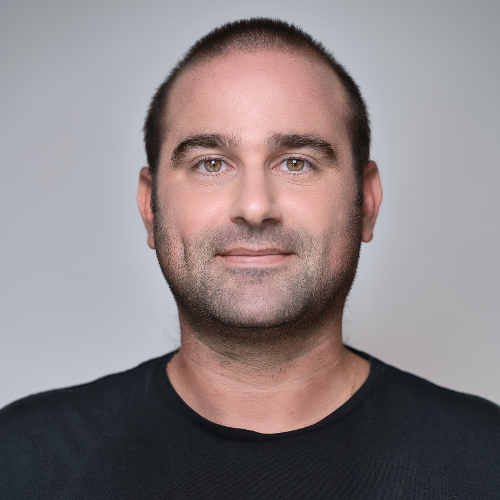
Gad Salner
R&D Manager and Public speaker, Co-founder of Kaduregel Shefel
With over 15 years of experience in development, Gad (ex WeWork, Melio) is an enthusiastic and innovative team player with a background in engineering, management, and architecture. He has a strong track record of leading product development in startups. His devotion to driving projects forward, creating a winning team culture and building awesome products has been his passion since the beginning.
Gad is also one of the creators of Kaduregel Shefel (1), a project capturing Israel’s cultural diversity through amateur football. The project produces exhibitions (2) videos and events which they show around the world, and interact with the large community gathered around it.
Gad attributes his unique blend of management methodologies to lessons learned at many different startups over the last 15 years, and from Kaduregel Shefel, where he ran a global cultural project. He had no idea just how incredibly useful this set of tools would be during a global pandemic. But c’est la vie!
(1) (https://forward.com/culture/398295/how-a-cult-israeli-tv-show-about-soccer-swept-europe-kinda/)
(2) (https://www.theguardian.com/football/gallery/2015/aug/04/jewish-arab-football-diversity-co-existence-in-pictures)
Talk: How to scale a unicorn-building engineering team (and stay sane)
THE most common question I get asked by people familiar with my recent journey is: ״how the hell did you go from a team of 1 to a 25 person engineering group in a year?״
We weren’t short on challenges this past year: lockdowns, remote onboarding for new employees, and hyper-growth struggles. Each of these can break a team on their own. But when you create and instill fundamental habits that grow individual capabilities, expanding the team isn’t just possible, it’s actually quite a natural progression.
Without a solid game plan wouldn’t have made it very far. And moving forward, we’ve laid a roadmap that gradually empowers those 25 engineers to grow and take ownership, paving the way for the next 50.
This is the story behind one of Melio’s engineering groups, and how we’re building a kickass, world-class team, which among other things, is changing the conversation around payments.
In this talk, I’ll take a deep dive into our new strategy step-by-step, from planning to execution: my structured game plan for empowering engineers to drive your team’s rapid growth in size, responsibility, and impact.
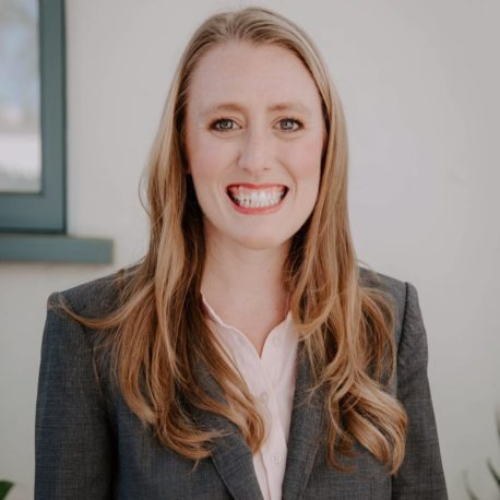
Amber Vanderburg
Founder AT The Pathwayz Group
Amber Vanderburg is a multi award winning international businessperson, keynote speaker, and founder of The Pathwayz Group. In 2016, she left her job in corporate HR to become the only female, only American, and only blonde Academy elite football coach for the Adidas Gameday Academy/Paris Saint Germain Academy in Bangalore, India. She worked with an international team of coaches to transform the organizational design, training development, and corporate culture to cultivate a higher-performing team. Today, Amber and The Pathwayz Group work with international teams that struggle with co worker tension, inefficient processes, and unmet performance expectations in an action focused approach to guide teams in the path to becoming more effective, more efficient, and more enjoyable.
Talk: How to Lead Change as the Newbie
How do we lead change in a team that we just met? How do we change in an organization that we are just now getting to know? What do we do in our first week? First month?
In this session, attendees can learn how to lead effective change in their organization and traps that leaders blunder traps that some can fall into if ignored. Sometimes even our best intentions can be sabotaged through poor implementation and here Amber will give all Agile leaders the knowledge, resources, and tools needed to lead effective change.

Angela R. Hooper-Menifield, MPA, SPHR, SCP
Chief Equipping Officer (CEO) & Owner AT Menifield and Associates, LLC
As Chief Equipping Officer (CEO) and founder of Menifield & Associates, LLC, Angela brings 28+ years of experience as a senior leader with the U.S. Department of Agriculture where she managed a national commodity grading program employing 3,500 – 4,000 employees annually and a budget exceeding $60 - $70 million. Having worked her way up the professional ladder from an entry level employee to the most senior position of a civil servant, Angela realized her promotion to supervisor was based on her technical talents and abilities versus her interpersonal skills and capacity to lead. As such, she learned quickly, the many pitfalls of supervising and experienced ‘Leadership Regret’. Having had this as her personal journey, Angela purposed herself with ensuring other supervisors would be properly equipped for the transition.
As a result of her passion to equip supervisors and leaders for success, Angela stepped away from government service and founded her business and has now trained, mentored, coached and delivered content to tens of thousands of supervisors and leaders in the United States and abroad. Today her clientele includes various government agencies, non-profits, corporations, small business owners and entrepreneurs.
Angela’s extensive background in Human Resources (HR), which includes earning a Master’s of Public Administration (MPA) in Human Resources, certifications as a Senior Professional Human Resources (SPHR) with the Human Resource Certification Institute (HRCI), Senior Certified Professional (SCP) with the Society of Human Resource Management (SHRM), and serving as an Adjunct Professor at St Joseph’s University in Brooklyn, New York, USA, (where she instructs and prepares other HR practitioners to earn their HR certification), in conjunction with her first-hand experience as a supervisor who leads with compassion and intention allows her to be an engaging, entertaining and educational speaker and trainer for companies and individuals. Angela’s delivery style, passion for supervision and command of the stage sets her apart from your average trainer or keynote presenter.
Angela prides herself in ‘meeting people where they are’, leading with empathy and equipping with practical tools and resources to have immediate application from her presentations. Angela utilizes her natural gifts and training skills to make even the most mundane of topics come to life and have meaning for the audience. Understanding that many of the duties and assignments of leading and managing others are far from glamorous, Angela finds a way of upbuilding her audience and instilling a belief in both them and their abilities that leaves a lasting impact on both the individual and their organizations.
Angela is also an Independent Executive Director with the Maxwell Leadership Team (formerly the named the John Maxwell Team) and serves as a Faculty Member teaching and supporting new team members across the globe. She is also a Launch Director for BNI New Jersey, USA and serves as a member of the BNI USA Diversity, Equity & Inclusion Committee. One of her most memorable stage events includes having the honor of introducing her mentor and leadership guru, John C. Maxwell on stage at the International Maxwell Certification in front of an audience of approximately 3500.
Angela is also founder of the B.E.S.T. (Building & Equipping Supervisors & Teams) Supervisory Academy, a concierge level training platform that equips supervisor with the necessary skills to transform poor performing organizations into ‘employers of choice’.
Talk: Proper Documentation - The Insurance Every Supervisor/Manager Needs but Often Doesn't Have
Though often viewed as tedious, time consumptive and burdensome, having proper documentation has often determined whether an action or procedure is sustained or overturned in many an organization through the years.
The legal system is replete of examples of supervisors facing the reality that while not wrong, they lack the capacity of ability to prove that their decisions were correct, legal or approved.
Angela, who coins herself as the Documentation Queen, will share with the audience a perspective that will lead to many having a greater appreciation and value for how to properly document and the incentive to develop new practices to do so for the good of both themselves and their organizations.
Key takeaways include:
Basic Principles to Keep In Mind When Documenting (the Why)
Cardinal Rules for Supervisors/Managers (What you Should and Should NOT document) (the What)
Ways to Get Started and Protect Your Organization Today! (the How)
As the saying goes, “If it’s not written, it never happened …”

Hélio Vogas
Motivational and Leadership Speaker AT www.heliovogas.com
You can see videos of him in action at www.heliovogas.com and raving reviews from people like the CIO at Unicef UK, an IBM Champion for Analytics, the president of the Polish Data Community, and more.
Hélio has spoken from local business breakfast groups to TEDx and the United Nations headquarters in Vienna, Austria. From student assemblies to audiences of C-level executives of Fortune 500 companies. From data professionals to agile and scrum leaders.
He uses eye-catching demonstrations, humorous interactions with the audience and high-energy moments to drive the message home and make it memorable and inspire action.
With science-backed and business-proven tips and strategies explained in an interactive and engaging way, Hélio will give you the tools and strategies you need to become a more effective leader, especially under extreme stress.
Talk: Leading Through Chaos
If you look from a historical standpoint, chances are you will never go through another pandemic again. From a statistical standpoint, you will most likely go through one or more crisis, be it economically, politically, local, political, industry-wide or just at your company.
Either way, how you lead your team through these crises is crucial.
It doesn't matter if you prefer Waterfall, SCRUM, Agile, Kanban, Lean Six Sigma, Extreme Programming, etc. It doesn't matter if you consider yourself an authentic, servant, transactional or whatever style leader. When things hit the fan, you need to raise above these titles, methodologies and styles and be the leader the moment requires of you.
In this session, Hélio will show you a few things you can do to lead your team more effectively through a crisis, regardless of your preferred leadership style or management methodology.
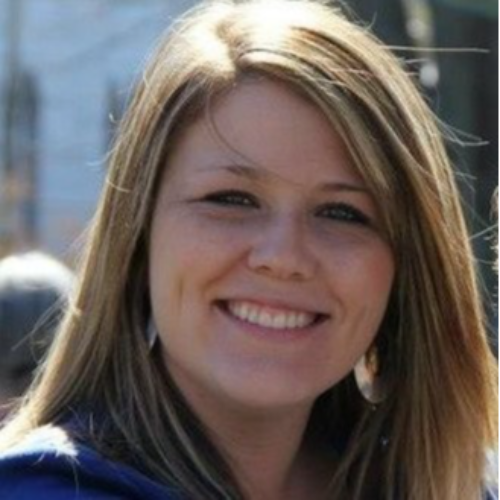
Katie Kenney
VP of Customer Success AT Bitrise
Leading the Customer Success team at Bitrise, I come with with 15+ years experience building and developing Customer Success teams - leading strategies that designed to increase customer satisfaction, retention and growth rates.
Happy customers start from a healthy team. I believe to drive customer success, you have to have a healthy team. Starting with the best people, building lasting relationships based on trust and creating a culture that puts the customer at the epicenter of everything that we do.
Talk: Empathetic Leadership: The importance of building Relationships & Trust
One of the most underestimated qualities in an effective leader is their ability to demonstrate empathy. By leading with empathy, leaders are able to build relationships and trust that infiltrate the business, improve communication and drive productivity. It’s important to assess the situation and know when to take charge, or take care of the people in charge.
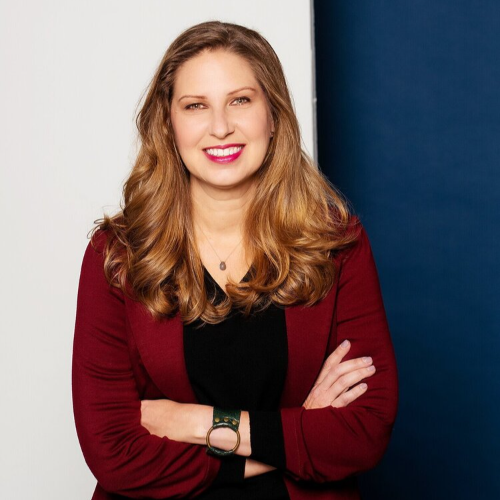
Jenn Donahue
President AT JL Donahue Engineering
Jenn Donahue PhD is a retired US Navy Captain and Commodore for an 1,800 personnel Regiment. She is also a civil engineer who works on large scale, high profile geotechnical projects. Over her 27-year military career, Jenn has built a bridge across the Euphrates River in the midst of the Iraq war, commanded an 800-personnel Battalion in Afghanistan, and constructed combat outposts in the middle of deserts filled with insurgents.
Jenn has led earthquake and tsunami reconnaissance missions in places like Samoa and Japan; designed the seismic plans for a bridge over the Panama Canal; and built roads by blasting and drilling in the coldest climes of Ketchikan. Astonishingly, Jenn has even served as the seismology expert at no fewer than five nuclear power plants.
Along the way she mentored scores of young leaders. Today Jenn runs JL Donahue Engineering. She also lectures at UC Berkeley and UCLA.
Talk: What it Takes to Be A Successful Leader in Today's Market
Many leaders are trying to be the leader they were pre-pandemic.
My question to the audience is: How is your leadership style working for you? If you’re trying to be the same leader you were five, or even two years ago, it’s likely not resonating with your team. We are in the midst of the Great Resignation and your people aren't leaving for money. The real reason why employees are leaving is that they no longer have hope or trust in their boss, team, position, or company.
I’m here to tell you that you don’t have to lead like someone you are not. Instead, you can learn to lead in a way that is authentic to you and empowers your team. So how can leaders bridge the gap between what they think a great leader is and what their team actually needs to be led to greatness? I'm ready to share the huge insights that that will transform your assumptions.

Shailvi Wakhlu
Ex-Senior Director of Data AT Strava
Shailvi is the Sr. Director of Data at Strava. As an analytics professional and a former software engineer, she has been involved in shaping great products for companies big and small for the last 16 years. She has worked on analyses across various business functions including product, operations, sales, marketing, and customer support in Fortune 500 companies like Salesforce and smaller start-ups like Strava and Fitbit. All the products she has worked on had more than 40M+ users, which trained her on the nuances of dealing with data at scale. Her job is to use data to tell effective stories that inspire action and spur tangible business growth.
Talk: Getting Comfortable with Self-Advocacy
Many people face difficulties effectively highlighting their professional success. Whether it is because they are shy, or because they lack the tools, it is a detriment to their own career success. In this talk, I will highlight specific ways one can reframe negative perceptions of advocating for themselves, and become comfortable sharing their wins effectively and authentically. Everyone deserves to be rewarded equitably for their amazing achievements!
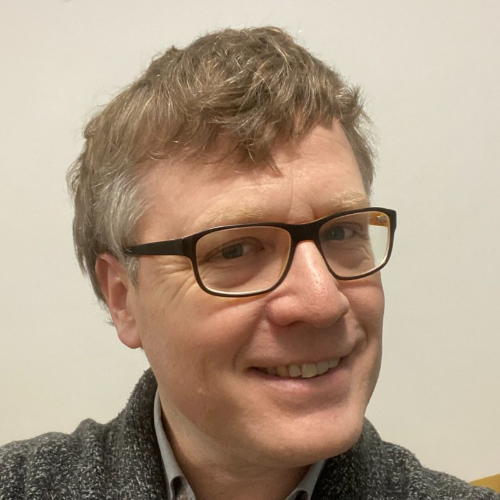
Benjamin Taylor
Managing Partner AT RedQuadrant
Benjamin Taylor runs RedQuadrant, a network consultancy in the UK, that has particular expertise in the public sector. He is a business evolutionary and avid leader fascinated by systems | cybernetics | complexity and (public) service transformation.
The point is better experiences of organisations for people and employees, and better outcomes from public services for citizens and communities. He takes ethics seriously and tries to make the work of change fun - and there's not much that's more fun than a great insight.
Benjamin shares and teaches on his favourite topics widely, including the international small-group RedQuadrant tool shed.
www.bentaylor.com
Talk: Five core practices for effective organisation
Drawing on multiple theories and over twenty-five years of practice, particularly in public service transformation, including introducing agile service transformation in public services.
The practices offer the potential to influence motivation, results, and evolving purpose will help beginners and battle-hardened veterans alike.
In this session, he will introduce :
ways to work towards productive conversations
ways to enhance clarity (of roles, tasks, programmes, relationships)
ways to build triple-loop learning
ways to shape passionate culture
and ways to shape good and clear intent.
These practices provide powerful organisational development interventions which really make a difference, and which, collectively, support lean, agile, and systems thinking in organisations of any kind.
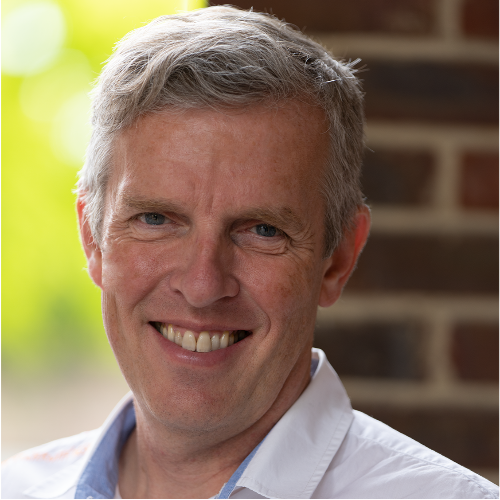
Alan Watkins
Co-Founder & CEO AT Complete
Alan is recognised as an international expert on leadership and human performance. He has a broad mix of commercial, academic, scientific and technological abilities. Over the past 24 years he has been a coach to many top business leaders and worked with the GB Olympic squad, coaches and athletes prior to London 20 l 2 and Rio 20 l 6. Originally trained as a medical doctor at Imperial College in London he worked for 11 years in the UK's National Health Service, in primary care in Australia and for a year in academic medical research in the USA. He ended up in Neuroscience research before leaving medicine to work with global business leaders.
Talk: The Biology of Leadership
If you want to change the results you’re getting you must change what you are doing, your behaviour. But changing behaviour isn’t easy. Why? Because the choices we make are driven by what we think. So really, we must change thinking. But that’s not easy. Why? Because what we think is driven by how we feel. So, to change results we must change how we feel. But that’s not easy. Why? Because how we feel is driven by our emotions and our emotions are driven by our biology. So, the results we achieve in life are ultimately rooted in our biology. Dr Alan Watkins will explain how its possible to be brilliant everyday by learning to control all levels of the human system.

Lili David
Learning facilitator and co-developer of Sociocracy 3.0
Co-developer of Sociocracy 3.0, Lili serves internationally, providing learning facilitation and mentoring to groups and organizations wishing to develop greater effectiveness and equivalence in collaboration. Combining a background in communications, business administration and events management, she supports organic organizational development to unfold.
Talk: Growing Agile and Resilient Organizations with Sociocracy 3.0
Let’s look beyond whole-system methodologies and frameworks for developing organizations, to the principles and patterns that lie beneath.
Sociocracy 3.0 (S3) is a free social technology for evolving agile and resilient organizations. It provides a comprehensive collection of tried and tested patterns for improving performance, engagement and wellbeing in organizations.
Since its launch in 2015, S3 patterns have been helping thousands of people around the world and from a diverse range of organizational contexts to get the best out of collaboration. From start-ups to small and medium businesses, large international organizations, non-profit organizations, families and communities.
In this talk, Lili David, will share about some of the most widely adopted Sociocracy 3.0 patterns in organizations today and offer some suggestions on how you can use them to grow agile and resilient organizations one step at a time, without the need for sudden radical reorganization or planning a long-term change initiative.

James Samuel
Engineering Manager AT Reddit Inc.
Talk: How engineering managers can lead with visibility
Becoming a manager is one of the hardest shifts in any individual contributor’s career. As IC, most of the time you write code: functions, classes, APIs that accept a set of inputs and return an output. As a result of the predictability that comes with writing code, you can write test cases with confidence that they will continue to work as planned. But as an engineering manager, you deal more with people topics which are not that predictable. You can’t push a change and instantly go to look at logs to see the impact of the change and revert when necessary. Even worse! Managers of several teams don’t have the luxury of a short feedback loop. Feedback from change may come in days, weeks, or months to managers– long enough to have a consequential impact on the team, delivery, culture, and more. The further you go up from the software team, the more you’re removed from the team’s day-to-day challenges, activities, and flow. But to steer your teams in the right direction, guard culture, and improve team health and engagement, you need visibility (observability). You need to be able to infer the state of your teams from the outside and be able to understand the state of things by looking at data.
The holy grail of leading with visibility is to be able to answer yes to all of the questions below:
1. Can you understand how stuff is being built?
2. Can you understand how stuff gets built on time and within budget?
3. Can you understand if the stuff built will continue to run?
4. Are the people building the stuff engaged and happy to take part in building the stuff being built?
5. Are your users getting value and satisfaction from what is being built?
In this talk, we’ll ground discussion on obtaining and measuring data that matters to give you visibility into your teams.
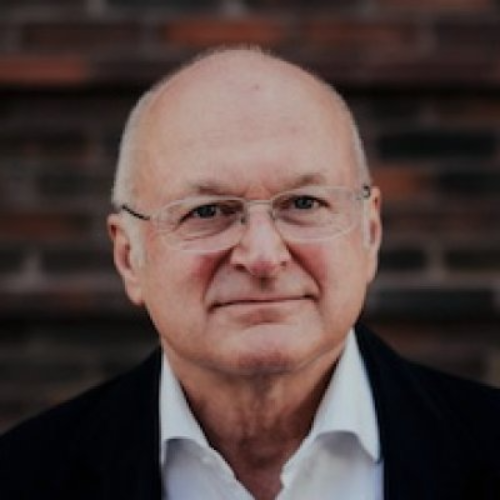
Joseph Pelrine
Agile Psychologist
A quiet and reserved researcher and practitioner, Joseph Pelrine is considered by cognoscenti to be one of the pioneers and top experts on Agile methods. He has spent over 25 years defining and refining processes to help some of the world’s most well-known companies improve their ability to satisfy the needs of their customers. As a psychologist, his focus on people and his experience in applying leading-edge techniques from social complexity and psychology to process optimisation goes far beyond the domain of software development, and extends to the whole organisation. Although Joseph Pelrine often works as a consultant or interim manager, his preference is passing his knowledge on by counselling and advising individuals and organisations, often in the role of a CTO/CIO/CDO "whisperer". He conducts research in novel applications of psychology to agile processes, and is also a PhD researcher in psychology and psycholinguistics.
Talk: Beyond the Buzzword - A psychologist's thoughts on psychological safety
With ca. 400 million search results on Google, psychological safety (PS) has become one of the biggest buzzwords in business in recent years. Unfortunately, most of the people writing and talking about PS are not psychologists. Although they are for the most part well-meaning, this has led to spread of mis-information about what PS is and how it can be fostered in teams.
This talk addresses some misconceptions about PS, presents techniques used by psychologists to analyse PS, and asks the question whether PS is all that's needed for high-performing teams.